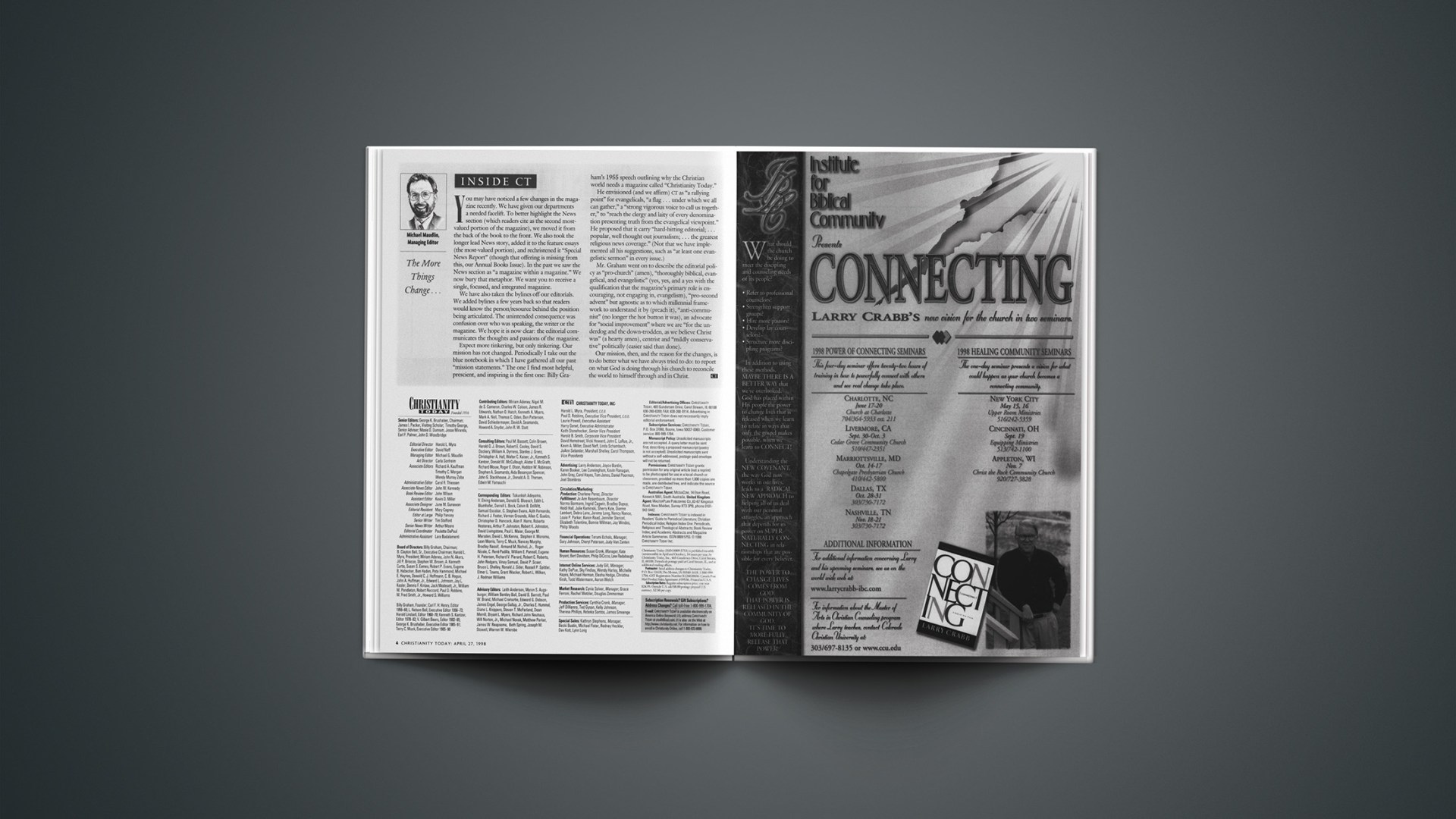You may have noticed a few changes in the magazine recently. We have given our departments a needed facelift. To better highlight the News section (which readers cite as the second most-valued portion of the magazine), we moved it from the back of the book to the front. We also took the longer lead News story, added it to the feature essays (the most-valued portion), and rechristened it “Special News Report” (though that offering is missing from this, our Annual Books Issue). In the past we saw the News section as “a magazine within a magazine.” We now bury that metaphor. We want you to receive a single, focused, and integrated magazine.
We have also taken the bylines off our editorials. We added bylines a few years back so that readers would know the person/resource behind the position being articulated. The unintended consequence was confusion over who was speaking, the writer or the magazine. We hope it is now clear: the editorial communicates the thoughts and passions of the magazine.
Expect more tinkering, but only tinkering. Our mission has not changed. Periodically I take out the blue notebook in which I have gathered all our past “mission statements.” The one I find most helpful, prescient, and inspiring is the first one: Billy Graham’s 1955 speech outlining why the Christian world needs a magazine called “Christianity Today.”
He envisioned (and we affirm) CT as “a rallying point” for evangelicals, “a flag … under which we all can gather,” a “strong vigorous voice to call us together,” to “reach the clergy and laity of every denomination presenting truth from the evangelical viewpoint.” He proposed that it carry “hard-hitting editorial; … popular, well thought out journalism; … the greatest religious news coverage.” (Not that we have implemented all his suggestions, such as “at least one evangelistic sermon” in every issue.)
Mr. Graham went on to describe the editorial policy as “pro-church” (amen), “thoroughly biblical, evangelical, and evangelistic” (yes, yes, and a yes with the qualification that the magazine’s primary role is encouraging, not engaging in, evangelism), “pro-second advent” but agnostic as to which millennial framework to understand it by (preach it), “anti-communist” (no longer the hot button it was), an advocate for “social improvement” where we are “for the underdog and the down-trodden, as we believe Christ was” (a hearty amen), centrist and “mildly conservative” politically (easier said than done).
Our mission, then, and the reason for the changes, is to do better what we have always tried to do: to report on what God is doing through his church to reconcile the world to himself through and in Christ.
Copyright © 1998 Christianity Today. Click for reprint information.










